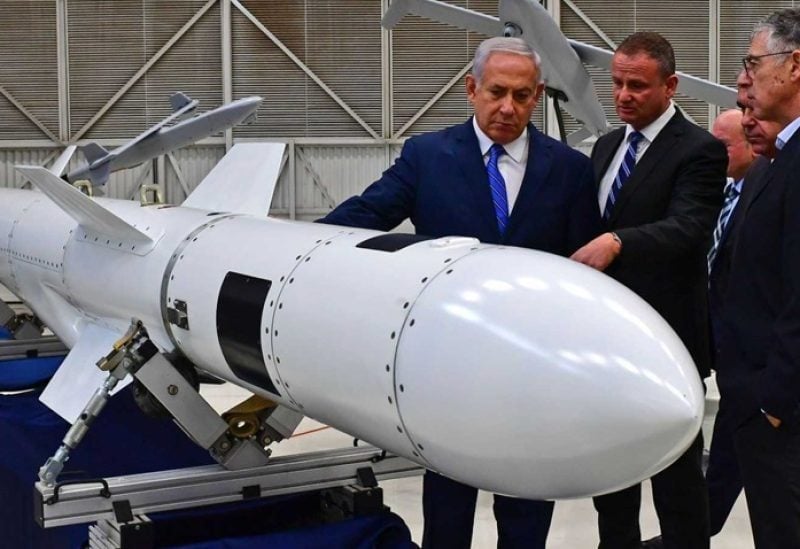
Netanyahu showing one of Israeli missiles
Because Israel has a long history of massacres in Palestine and Lebanon, it is not unexpected that those who perpetrate all of these murders against children and women in Gaza, demolish them, wipe out entire communities, and use illegal weapons would threaten to drop a nuclear bomb.
Let’s avoid going into the controversy that the radical Israeli minister after he threatened to use nuclear weapons in his battle. Rather, an uproar has occurred within Israel, and this is not out of concern for civilians in Gaza, nor is it out of concern for returning from a mistake, nor is it out of concern for humanity, because the one who lacks something cannot give it, and humanity is not. It’s in the Israeli vocabulary, which is chock-full of atrocities.
According to sources, the wave of anger that occurred came out of concern for the secrecy of the nuclear weapons that Israel possesses, which it has not officially announced, and is covering up about to this day.
Sources told Sawt Beirut International that “Israel possesses 90 plutonium-based nuclear warheads, and that it has produced enough plutonium to make 100-200 weapons. While a stockpile of this size constitutes a minimum of deterrence, the lack of a program testing explosives may raise concerns about effectiveness. There is also speculation that Israel worked with other countries to test the effectiveness of its weapons, and Tel Aviv may have relied on France for some test data until Paris imposed an embargo on Israel after the Six-Day War in July 1967.
“Israel has never officially admitted that it owns nuclear weapons and has instead repeated over the years that it would not be the first country to ‘introduce’ nuclear weapons into the Middle East, and that leaves a lot of ambiguity”, sources explain.
The formulation of the phrase “it will not be the first” goes back to the Eshkol-Comer Memorandum of Understanding concluded between Israel and the United States on March 10, 1965, which for the first time includes a written Israeli confirmation that it will not be the first to introduce nuclear weapons in the Middle East.
Israel refuses to sign the Nuclear Non-Proliferation Treaty despite international pressure on it to do so, and states that signing the Nuclear Non-Proliferation Treaty would be contrary to its national security interests.
Sources also confirm that Netanyahu’s dissatisfaction with his minister’s extremist statement did not come out of concern for human feelings, but rather came in order to preserve the ambiguity and secrecy that Israel relies on regarding its nuclear arsenal, which, if used, would lead to a wave of a nuclear arms race in the Middle East.